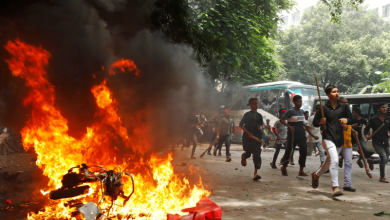275 custodial rape cases filed between 2017-22 in India: NCRB

New Delhi: India has recorded 275 cases of custodial rape between 2017 and 2022, as revealed by the National Crime Records Bureau (NCRB).
According to Kashmir Media Service, these incidents, documented across various states, involve perpetrators from law enforcement, armed forces and other custodial facilities. Women’s rights activists emphasize the urgent need for victim-centric approaches, strengthened legal frameworks, and awareness among law enforcement to combat this egregious crime.
Of the 275 cases of custodial rape registered since 2017, Uttar Pradesh state in India accounts for the highest number of cases at 92, followed by Madhya Pradesh state at 43 cases.
“Custodial settings provide unique opportunities for abuse, with state agents often using their power to force or coerce sexual access,” Population Foundation of India, executive director, Poonam Muttreja said. “There are instances where women taken into custody for their protection or due to their vulnerable status, such as victims of trafficking or domestic violence, are subjected to sexual violence, reflecting a misuse of power under the guise of state protection,” she said.
Ms Muttreja highlighted that there is a complex interplay of factors contributing to custodial rape, including patriarchal social norms, inadequate gender-sensitivity training for law enforcement, and stigma surrounding victims.
“The reported cases of custodial rape are often a manifestation of power imbalances and a lack of accountability within our law enforcement systems,” Ms Muttreja said. She said such rape causes include patriarchal social norms, abuse of power by authorities, lack of gender-sensitivity training for police, and societal stigma attached to victims. Ms Muttreja said that to address the root causes and consequences of custodial rape effectively, the government must take a multi-faceted approach.
“Custodial rape is a very common scenario in police stations. The way the junior police officers, even lady constables talk to survivors, show that they have zero empathy for them,” she said. She emphasised the critical need for sensitisation and awareness among police personnel, coupled with legal mechanisms to hold perpetrators accountable.








